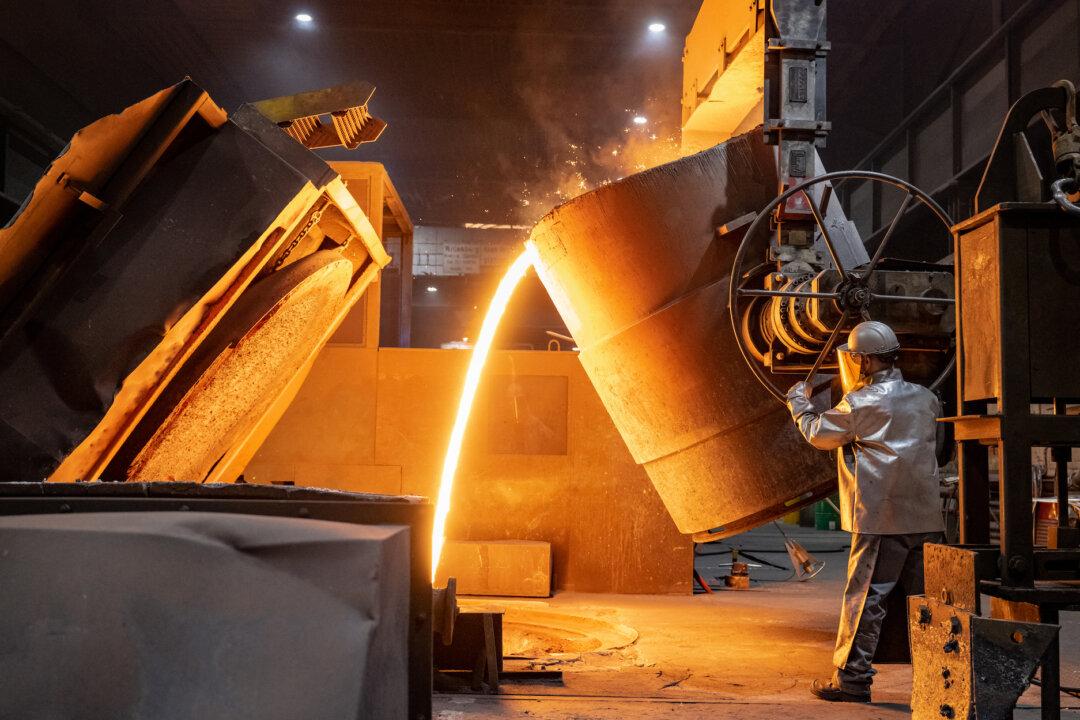Producer price inflation in the eurozone surged to a record high in the year through April, though month-over-month data showed inflationary pressures edging down, as European Central Bank officials consider how fast and how much to tighten monetary settings to tame soaring prices.
The E.U. statistics office Eurostat said in a June 2 statement (pdf) that the euro area’s producer price index, which tracks inflation before it hits consumers, rose by an annual 37.2 percent in April, the fastest pace on record.





